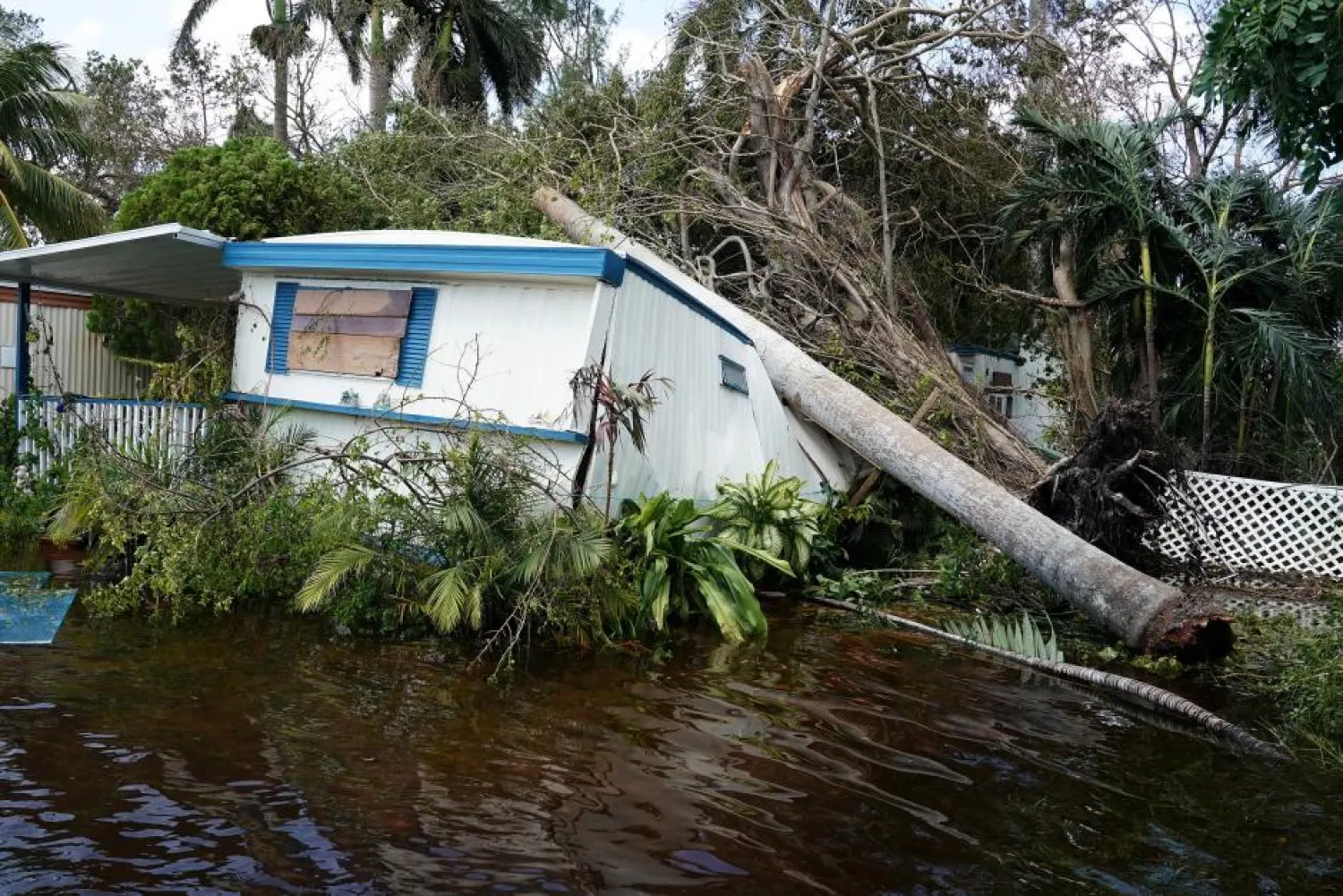Residents of Florida started to return to their homes on Tuesday after they had fled the destruction of Hurricane Irma as officials were slowly piecing together the scope of its vicious path across the peninsula.
The fate of the Florida Keys, where Irma rumbled through with Category 4 muscle, remains largely a question mark. Communication and access were cut and authorities dangled only vague assessments of ruinous impact.
Florida Governor Rick Scott called the storm "devastating" after emerging from a Monday fly-over of the Keys. The governor described overturned mobile homes, washed-ashore boats and rampant flood damage.
“There’s devastation,” he said, adding that virtually every mobile-home park on the island chain was left upended. “It’s horrible what we saw.”
A Navy aircraft carrier was due to anchor off Key West to help in search-and-rescue efforts.
Six deaths in Florida have been blamed on Irma, along with three in Georgia and one in South Carolina. At least 35 people were killed in the Caribbean.
Downgraded to a tropical storm early on Monday, Irma had ranked as one of the most powerful Atlantic hurricanes. It caused record flooding in parts of Florida after it left a path of deadly destruction on several Caribbean islands.
Heather Carruthers, the Monroe County Commissioner, said people had been killed in the archipelago, where nearly 80,000 permanent residents live, apart from one already known fatality. She did not have a count on how many.
“We are finding some remains,” she said in an interview with CNN. Video footage of the islands showed homes torn apart by sustained winds of up to 130 mph (210 kph), which left the Keys without electricity, running water and cell phone service.
Several major airports in Florida that halted passenger operations due to Irma will begin limited service on Tuesday, including Miami International, one of the nation’s busiest airports. Irma scrambled transport in the major tourist hub, leading to thousands of flight cancellations and one of the largest evocations in US history.
Still, the scope of damage in Florida and neighboring states paled in comparison with the utter devastation left by Irma as a Category 5 hurricane, the rare top end of the scale of hurricane intensity, in parts of the Caribbean, where the storm killed nearly 40 people - at least 10 of them in Cuba - before turning its fury on Florida.
In South Carolina, the Charleston Harbor area saw major flooding on Monday with water about 3 feet (1 meter) above flood stage and minor flooding is forecast for Tuesday, the National Weather Service said.
In Florida, 51 of 178 gauges in the state were at flood stages on Monday with some of the worst floods in Jacksonville, in the northeastern part of the state, where the St. Johns and Cedar rivers hit record flood levels on Monday. The waters are forecast to recede on both rivers on Tuesday but still be above flood stages, the service said.
Monroe County would reopen road access on Tuesday morning at 7 a.m. EDT (1100 GMT) for residents and business owners from Key Largo, the main island at the upper end of the chain, as well as the towns of Tavernier and Islamorada farther to the south, fire officials said.
No timetable for reopening the remainder of the Keys was given.
The Keys were largely evacuated before the storm struck and police established a checkpoint on Monday to keep displaced residents from returning while authorities worked to restore power, water, fuel supplies and medical service.
One of the biggest lingering problems was widespread power outages, with utilities reporting some 7.4 million homes and businesses without electricity in Florida and neighboring states. They said it could take weeks to fully restore service.
Scott said 65 percent of Florida, the third most populous US state with about 18.8 million people, was without power.
Between 2,000 and 3,000 utility workers from out-of-state were staying at BB&T Center in Broward County, home to the National Hockey League’s Florida Panthers, said Gus Beyersdorf, 40, of De Pere, Wisconsin, who was inspecting power lines in the southeastern coastal city of Fort Lauderdale on Monday.
“Each one of us has a cot, a single foot apart,” Beyersdorf said on Monday afternoon. “I slept in the truck last night just to get a break from it.”
Irma’s arrival in Florida came around two weeks after Hurricane Harvey claimed about 60 lives and caused property damage estimates as high as $180 billion after pummeling the Gulf Coasts of Texas and Louisiana with heavy rains and severe flooding.









